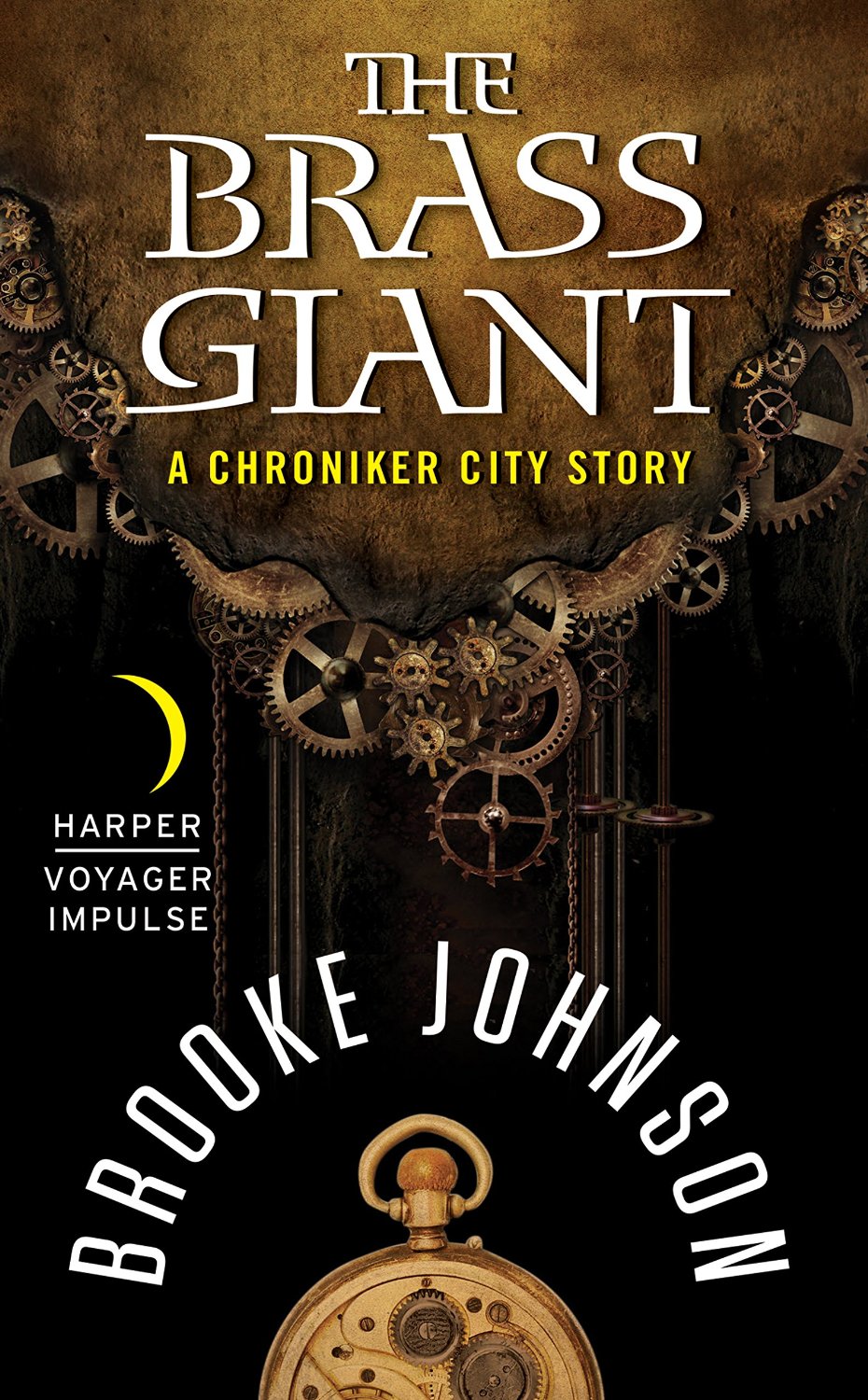The Mary Sue Interview: The Brass Giant‘s Brooke Johnson on Her Steampunk Engineer Heroine

Brooke Johnson’s The Brass Giant is set in an alternate-history version of London, filled with brassy, beautiful steampunk tech—but is still inhabited by humans with all their flaws. Female Engineer Petra Wade is barred from practicing her trade because she’s a woman, but she’s a prodigy—under her care, machines sing; they work brilliantly, and Petra knows she was born to be a mechanist. So when an opportunity arises for her to work on an exciting top-secret automaton project, Petra is all in… even though, if her involvement is discovered, her life will be at risk. We spoke with Johnson about her new book, the steampunk world, and her awesome female protagonist.
Sam Maggs (TMS): Tell us a little bit about The Brass Giant.
Brooke Johnson: The Brass Giant is a science-based steampunk novel that follows the story of Petra Wade, a young clockwork engineer who has her sights set on joining the Guild, the engineering elite of the late 19th century.
Unfortunately, the Guild refuses entry to women, many of the governing council believing that women aren’t suitable for the engineering field. But when Petra meets Emmerich Goss and he offers her a job working on a top-secret automaton, she sees an opportunity to bypass the Guild’s antiquated position and earn her right to be an engineer by proving herself up to the task. But as she and Emmerich build the clockwork machine, she discovers a conspiracy from within the Guild—and their automaton is right in the middle of it.
TMS: What draws you to Steampunk?
Johnson: The aesthetic, mostly. There’s something about the dark bronzy metals, the gleaming brass, the smell of oil, the tangible tick of clockwork and hiss of steam. Old machines fascinate me. I think that growing up in an age of computers and ever-advancing technology, something about the almost da Vinci-esque designs of Victorian technology, combining both art and function, held this sort of romantic, old-fashioned quality for me that was missing from the cold, hard lines of modern technology.
Beyond that, the Victorian era is a time rife with conflict—between social classes, races, government factions, and nations—and yet there is this unbridled optimism in the face of it all. Misguided at times, surely, but that romanticism for the future, the willingness to believe in something better, is something I think we can all relate to.
TMS: Petra is a seventeen-year-old clockwork Engineer. Was it important to you to write a strong, smart female protagonist in this book?
Johnson: When I first got the idea for the book, I knew I wanted the main character to be female, if only because the fact that she was a girl was the leading conflict for the story. But when I started writing, I realized that this smart, capable, daring young woman was the character I had always wanted to read about, and over time, she became this sort of symbol in my mind, encouragement for girls interested in science and math and engineering. She became more important the more I realized that there was a lack of these kinds of characters in the fiction I read as a teen.
TMS: Do you think genre books tend to feature more awesome female characters than other books?
Johnson: Without writing an essay on it, I’ll say yes—but with the caveat that there need to be even more of them. Science fiction and fantasy allows people to be bigger and better than their contemporary counterparts, and there is certainly more potential for awesome female characters, but I personally feel like writers could do more to include more awesome women in fiction, instead of relegating fifty-percent of the population to the role of the stereotypical nurturer—mother, wife, girlfriend, sister—or the sexy, leather-clad, gun-wielding badass with breasts. Let’s make them starship commanders, venomous queens, lawless protectors, and temperamental sorcerers—powerful women in their own right.
And this is happening. As the genre opens up to more diverse voices, we get more diverse characters, powerful leading ladies who aren’t defined by their sex or gender but by what they do. But they are few and far between. We need more of them.
TMS: I read that you love RPGs. Has that influenced your writing at all?
Johnson: Surprisingly, no. I didn’t get into tabletop gaming until well after I started writing—instead of the other way around—so it hasn’t yet influenced my writing in any significant way. That’s not to say that I wouldn’t love to write some stories featuring a few of the characters I’ve rolled in past gaming campaigns. Coming from a writing background, I put a lot of emphasis on character building, so when I sit down at the table with a new character, I probably have at least fifteen pages of backstory written up and a very thorough understanding of who the character is. My gaming group likes to poke fun at me for it, but it’s something that I enjoy doing.
TMS: Can we expect to see more of Petra?
Johnson: Absolutely! She makes an appearance in the same-universe novella The Mechanical Theater that comes out in June, from Harper Voyager Impulse, but beyond that, I’m in the middle of writing the sequel to The Brass Giant, which continues Petra’s story roughly six months after the events of the first novel. In it, you get to see more of Petra’s engineering skills put to work as she deals with the aftermath of her decisions in the first novel. The second novel is decidedly more steampunk than the first; there’s much more Victorian tech and traditional steampunk tropes involved, which Petra has a hand in.
The Brass Giant is out tomorrow, May 5th, through Harper Voyager Impulse.
—Please make note of The Mary Sue’s general comment policy.—
Do you follow The Mary Sue on Twitter, Facebook, Tumblr, Pinterest, & Google +?
Have a tip we should know? tips@themarysue.com